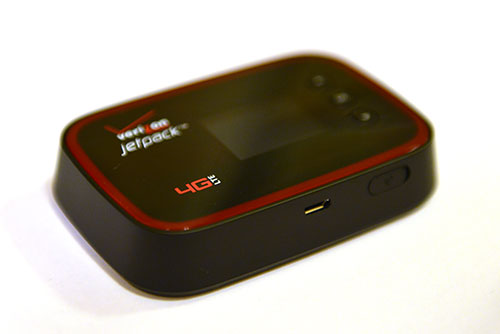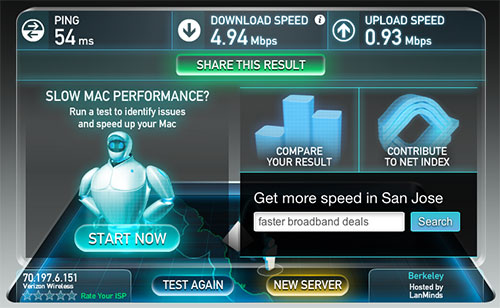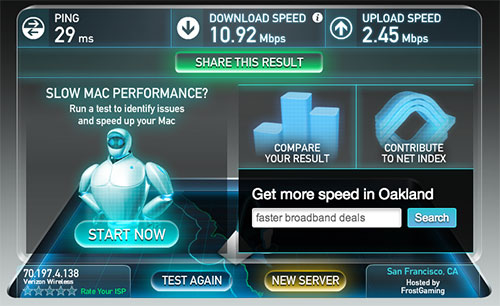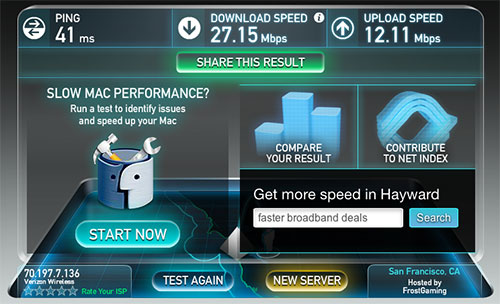After using the Karma WiFi device for one afternoon, I purchased the Verizon Jetpack MHS291LVW instead. The big advantage of the Karma is the low initial cost. For those needing access to Wi-Fi once a month or even once a week for a few hours, the no commitment $14 per 1 GB Karma would probably suffice.

However, once your usage level increases, you’re looking at $56 per 4 GB versus $50 per 4 GB on Verizon, provided your usage level remains steady month-to-month.

The big difference though is the speed. On the Karma, I was seeing 1.34 Mbps download and 0.11 Mbps upload. The Verizon unit was a lot faster at 4.94 Mbps download and 0.93 Mbps upload, which was pretty close to my 6 Mbps AT&T DSL connection. Ookla Speedtest clocked my AT&T service at 5.07 Mbps download and 0.64 Mbps upload.
Update – August 29, 2013
I wonder if the speedtest.net numbers are valid. At one location in Palo Alto, the Verizon MiFi clocked in at 10.92 Mbps download.

In Mountain View, speedtest.net reported the same unit achieving 27.15 Mbps download.
